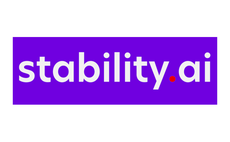
AI analysis is not fulfilling its potential
AI and analytics are hugely valuable in generating predictive, intelligent reporting and advanced customer insights.
While industries worldwide realise the benefits of such capabilities, many organisations are still in the early stages of deployment, if at all. Implementation costs, insufficient expertise and concerns surrounding compliance and governance are stifling progress.
Computing's latest report in this space, conducted in partnership with Intel, explores what constitutes AI and advanced analytics success.
AI data analysis is not yet fulfilling its potential at many organisations - just nine per cent of survey respondents report increased sales, while 16 per cent are seeing the benefit of future business opportunities. Just six per cent say conducting advanced analytics creates minimal issues for their organisation, while around half admit it is a challenge. While organisations recognise the benefits of implementing AI data analysis, there is still major headway to be made when it comes to execution.
Skills power success
More than half of the IT leaders we surveyed lacked a dedicated central analytics team, revealing gaps in expertise and potentially innovation as a result. This is reflected in 42 per cent saying lack of expertise is a major obstacle when implementing data analytics and AI strategy at their organisation.
Companies are struggling to get their workflows to coordinate using data collection and access. Only a fifth of respondents say their organisation has achieved a view of their enterprise data pool that is both centralised and seamless. Without in-house expertise, organisational data silos and achieving an organisation-wide single view are creating severe problems. Organisations may be missing important insights due to a lack of visibility across their data.
Competing for cost and customers
A major issue seen across most industries is the cost of implementation, with around half of cloud decision-makers citing it as their biggest obstacle. However, organisations recognise that driving down costs through automation is the main driver shaping advanced AI data analytic strategy. In short, IT leaders want the lower costs and greater workload efficiency these technologies can unlock, but unforeseen costs are limiting their success.
Choosing the right service provider goes some way to alleviating these concerns, providing guidance for teams as well as developing a cost model and ensuring high levels of compliance. In this way, IT leaders can focus on the data and analytic results alone, and not become bogged down in managing infrastructure or implementation. They need not fret over scaling the solutions and delivering business value when they can depend on service support.
For IT leaders, powerful hardware, whether it is deployed across the cloud or at the edge, underpins AI and data analytic improvements and offers crucial insight. Scalable processors can accelerate AI initiatives, increasing performance, optimising tasks and streamlining development. Customer insights and competitive advantage are also key drivers in AI and data analytic strategy as organisations recognise the need to keep pace with user expectations.
To ensure business innovation and growth, decision-makers must be adept at using AI and advanced analytics across data and workflows. Additionally, they must recognise the role of hardware and how service providers can help.
For many, the answer is service providers and hardware vendors that can alleviate governance, cost, and security worries. Infrastructure service providers and their expertise on specialist hardware for data and analytics workloads will allow organisations to seize the opportunities created by rapid data insights.
To learn more about Computing's latest research into why ease of use is at the core of AI and advanced analytics success, read the full report.
This post is sponsored by Intel




















